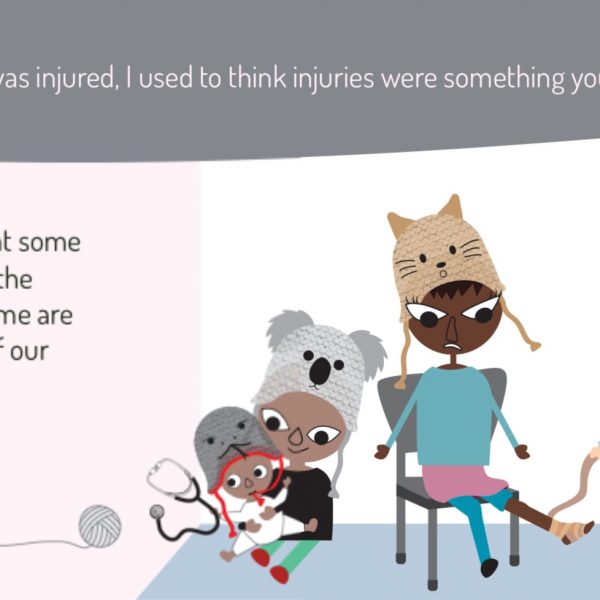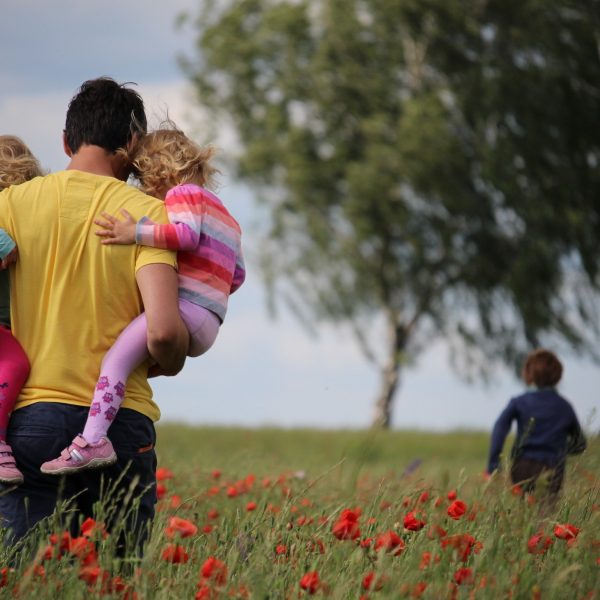New resource developed to support ADF, first responder families with redeployment

One of the unfortunate realities of growing up as a child in an Australian Defence Force (ADF) or first responder family is that it will likely mean many moves and relocations across the course of the early years of life.
While it can be exciting to move to a new house and a new community, relocations can be a major source of stress for many families.
Since 2020 researchers from the University of New England have been working on a number of free, online, award-winning research-based resources to support currently serving and veteran ADF and first responder families under the banner of Child and Family Resilience Programs.
In 2024 the project team have been working with partners and those with lived experience to co-create a new research-based storybook to support children with relocation.
What are the positives?
The positive consequence of frequent relocations is that children get to know different parts of the country and sometimes different cultures if they are posted overseas. This can help to boost their confidence to relocate for study, work and relationships when they are adults. Also, if well supported, children can develop coping strategies to help deal with change.
What are the challenges?
Despite the positives, there are many challenges for children. They feel the stress within the family, and younger children might struggle to understand what is happening during the different stages of the move. For example, the service parent might leave early to start their new role, and the other parent and children are left to pack up their house and say goodbye. When they arrive at the new location, they might be living out of a suitcase for a few weeks before they can access their belongings.
Additionally, relocation means parting ways with educators and friends within their early childhood service or school. Close relationships with educators are the hallmark of quality education, so changing services can disrupt their learning. Interstate moves can mean school children change educational systems and even levels, which can cause gaps in their learning. For those in early learning, finding a new service can be hard due to the number of ‘childcare deserts’ in Australia.
Biggest impact
An Australian study into children from Defence families revealed the struggles they faced making new friends and keeping old ones. The children said this was a major stress in their lives. Similarly, partners of service personnel can struggle to make friends in the new location as they move in and out of communities.
Disruptions to health care can mean their health and wellbeing is affected. Families can shuffle between waiting lists as they try to access GPs, specialist appointments and allied health services. With 30 per cent of Defence personnel living in regional, rural and remote locations, families moving in and out of these communities can find it difficult to get appointments before relocating once more.
The project team found that more than 60 per cent of the ADF parents they surveyed were not confident when it came to supporting their children to navigate the stresses of service family life, including moving.
Comments from parents included:
We’ve moved 7 times in 5 years. (Teagan)
As my children get older it gets harder for them to relocate and stay motivated to make friends. (Freya)
When my eldest was almost 3 we were living in Sydney. We drove to the Gold Coast … for Christmas, were home… packing for 2 weeks and then flew to Rockingham to move … in temporary accommodation for 2 weeks. He was very out of control emotionally, having tantrums and he developed a stutter. We didn’t really know how to support him through the stress. (Teagan)
Our eldest (4) often asks to go back to our last posting location, and often talks about his “old friends”…telling us that he “just really misses them”…we struggle to help him … he doesn’t understand. (Miranda)
Caleb and Grandpa’s story
To support these children and parents, the project team has developed a new research-based storybook which uses narratives collected from those with lived and living experience of service families.
‘We’re Moving Again: Caleb’s and Grandpa’s Story’ is suitable for all school aged children, whether they have experienced moving or not.
The story is told through the eyes of Caleb, whose family relocates as his father is a police officer, and his father’s partner is in the Navy. Caleb learns ways to cope with relocations by trying out practical strategies his grandfather suggests.
The book was co-created with research partners who support service families. Many organisations and volunteers have contributed their time to the project. Additionally, the Canadian Forces Morale Welfare Service provided funding for the illustration of the storybook.
The draft version of the book is available for free download, with the project team inviting feedback to improve the resource, with the final version due for release in October.
To accompany the book there are a range of modules for use by parents, educators and support workers. The modules provide information and practical activities to support children with relocation.
Popular

Quality
Practice
Provider
Research
ECEC in focus - Una Springwood’s intergenerational initiative brings young and old together through connection and care
2025-06-30 10:00:45
by Contributed Content

Provider
Practice
Quality
Research
Aboriginal Education Strategy drives early learning and school success in South Australia
2025-07-01 09:55:12
by Fiona Alston

Workforce
Policy
Quality
Research
Inclusive Practice Framework set to strengthen inclusion in early childhood settings
2025-06-24 11:37:00
by Isabella Southwell












